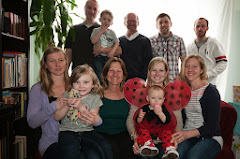With
the presidential election results squarely in our review mirror, I’m amazed at
people’s reaction. I know Christians who are deeply disturbed by a Trump
presidency and others who are gleeful that at last, our left leaning country
may stand a chance at tipping more upright. Some people in New York, Christians
and otherwise, are afraid to admit they’d voted Trump for fear of recrimination,
while others are planning on monitoring his every move. As one of my left
leaning friends put it, “We’ll watch him and hang it on his neck when he messes
up.” Others are protesting outright and taking to the streets. And then there
are the protests of the protests. “What are we protesting?” I heard one person
say. “Our democratic process?” One man named Dionne Alexander, a vet,
excoriated those who are protesting in a Facebook post gone viral saying,
“You’re causing all this destruction because your candidate lost! See that’s
the problem with this country. You can’t always get your way…Quit being
crybabies.” Whoa! We are one divided country right now. So what can we do to
live in an anxious age?
I’m reading a good book right
now by John Inazu called Confident
Pluralism. It’s political science book and one that offers a way through
the maze. I’d recommend it for those who are trying to figure out how we can
live a pluralistic culture. The same author co-wrote an article with Tim Keller
in Christianity Today, September 16,
2016 entitled, “How Christians Can Bear Gospel Witness in an Anxious Age.”
Listen to Inazu and Keller:
Our engagement in… an anxious age
is made possible by our confidence in the gospel in a pluralistic society where
people have profoundly different beliefs. We won’t always be able to persuade
those around us that our beliefs are right and theirs are wrong.… But
recognizing the existence of these disagreements should not prevent us from
holding to what is ultimately true. Our beliefs can be true, and we can hold
these warranted beliefs confidently even though others reject them. …. [a]
confidence in the gospel can encourage us to work to strengthen the social
fabric for the good of others.
This kind of posture is what one of
us [Inazu] has called “confident pluralism.” As Christians, we can
engage with the pluralism around us because our confidence lies elsewhere. We
can acknowledge genuine differences in society without suppressing or minimizing
our firmly held convictions. We can seek common ground even with those who may
not share our view of the common good.
So here’s a thought. Regardless of where you/we stand on the
election results, if you are a Christian, lets choose to put our confidence in Christ and what God has
done through his work to bring real lasting change to each of our lives, and in
our culture. And while we’re at it, lets take the time to listen to those who
have a different opinion with respect, grace, and genuine interest. It will go
along way to lowering social anxiety, contributing to the common good, and we
may even learn something.


